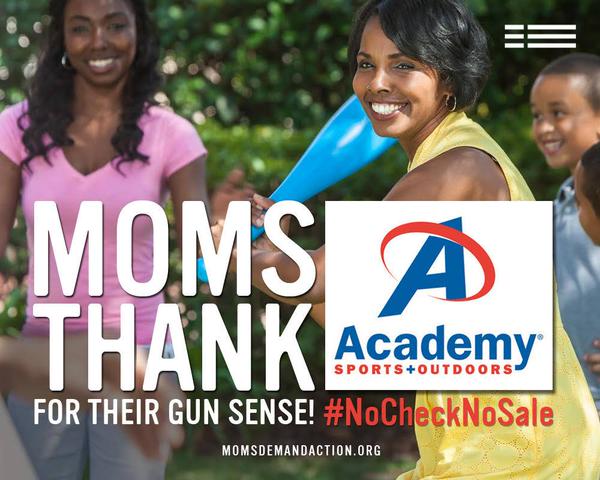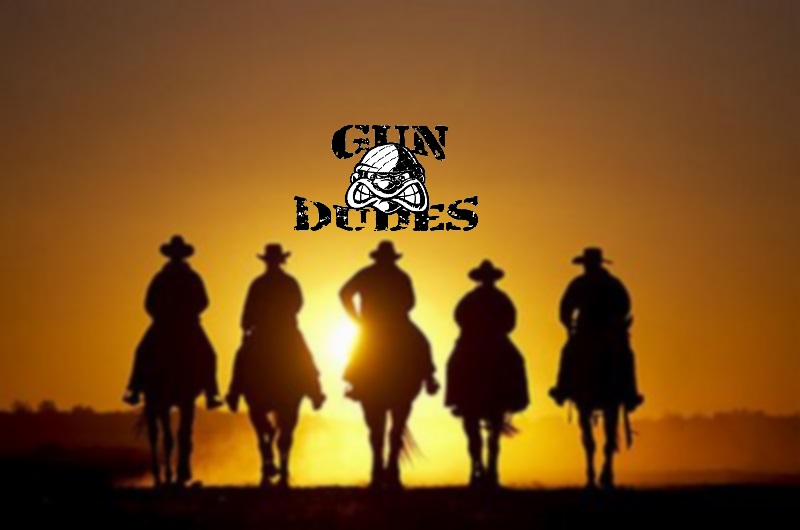California law prohibits a gun store from having advertising on the building indicating that they have handguns for sale. Obviously, this is a clear violation of the First Amendment rights of the store owners and it was for that reason that they sued California Attorney General Kamala Harris last November.
The judge hearing the case, US District Court Judge Troy L. Nunley, an appointee of President Obama, agreed that the First Amendment rights of the plaintiffs were being violated. Nonetheless, he refused to issue a preliminary injunction as it “would alter the status quo” and he found that this was a greater harm than the damage to the plaintiffs’ Constitutional rights.
Say what?
Please tell me what harm there is to the public by allowing a store to put a Team Glock sign or a S&W logo on their front display window.
I’ll let the CalGuns Foundation continue the story.
July 16, 2015 (SACRAMENTO, CA) – The State of California’s ban on
handgun-related speech by licensed gun dealers likely violates their
First Amendment speech rights, held a federal judge in
Sacramento earlier this morning. The order, issued by District Court
Judge Troy L. Nunley, found that the ban is probably unconstitutional,
likely doesn’t materially reduce crime, and likely irreparably harms
plaintiffs’ First Amendment right to express themselves the way they
wish to. Nonetheless, the judge allowed the restriction to temporarily
stand, while the case progresses further.
The gun dealers argued that California Penal Code section 26820—first
enacted in 1923—prevents them from displaying any “handgun or
imitation handgun, or [a] placard advertising the sale or other transfer
thereof” anywhere that can be seen outside their stores and
“unconstitutionally prevents firearms dealers from advertising even the
most basic commercial information—‘Handguns for Sale’—at their places of
business.”
In today’s order, Judge Nunley said that the State “does not meet its burden of showing that the Central Hudson elements,
in tandem with the additional First Amendment principles discussed
above, are met. Therefore, Plaintiffs raise serious questions going to
the merits of their First Amendment challenge to section 26820.
“On balance – based on the arguments and evidence currently before the
Court – the Court also finds it is more likely than not that Plaintiffs
will succeed on the merits of their First Amendment claim.”
While California Attorney General Kamala Harris had argued that the law
was useful in preventing handgun-related crime, the Court held
that “there is not adequate evidence produced by the Government showing
how, specifically, limiting impulse buys from passersby helps to manage
handgun crime and violence….the Government has not shown that the ban is
narrowly tailored to achieve the desired objective of managing handgun
crime and violence.”
Drawing an inference that most prospective gun store customers would
believe the dealers sell handguns in addition to other types of
firearms, the Court said that common-sense understanding “perhaps shows
the pointlessness of section 26820.”
In spite of the fact that the firearm dealer plaintiffs showed a
“likelihood of irreparable harm” to their First Amendment rights, and
Judge Nunley’s finding that Harris failed to show how the law actually
advanced public safety, the Court said that the public interest is best
served by allowing the California Department of Justice to continue
enforcing the challenged law during the course of the lawsuit.
“Granting the injunction would alter the status quo by requiring
California to alter its regulatory scheme and practices as they pertain
to firearms. Therefore, the Court takes the requisite caution in
deciding against altering the status quo. With due consideration to the
free speech considerations raised by Plaintiffs, which are also of
public interest, a cautionary approach that favors denial greater serves
the public interest than granting the injunction.”
The gun dealers noted that judge’s arguments for a “cautionary approach”
in denying the preliminary injunction are undermined by his conclusion
that the law likely isn’t really reducing crime.
In response to today’s ruling, California Association of Federal Firearm
Licensees (CAL-FFL) President Brandon Combs said that
the firearm dealers are reviewing the decision and
considering their options.
“While we are pleased that Judge Nunley agrees with us on the law’s
likely unconstitutionality, it’s disappointing that he would allow the
State of California to continue enforcing it during the balance of
litigation.
“If this were a speech case about abortion providers rather than gun
dealers, I doubt very seriously that the Court would have allowed the
law to stand while it was being litigated. For that matter, it’s hard to
imagine that Attorney General Harris would have bothered defending it.
“We look forward to the plaintiffs’ next steps and will continue to
support the case until the law is overturned and our dealers’ First
Amendment rights are restored.”
Today’s order in Tracy Rifle and Pistol, LLC, et al. v. Attorney General Kamala Harris, et al. and other case documents can be viewed at calgunsfoundation.org/litigation/trap-v-harris.
The lawsuit is supported by CAL-FFL, California’s firearm industry association, as well as Second Amendment rights groups The Calguns Foundation and Second Amendment Foundation.
UPDATE: Professor Eugene Volokh discusses the case at the Washington Post. He advised on the case and thinks the judge got it wrong here.
As we noted in our reply, the “impulse buying” rationale for the law rests thus on a rather far-fetched argument. It imagines a person who is in the grip of some emotion (presumably anger, jealousy or depression). He “otherwise might not enter [a] store” (to quote the state) to buy a handgun — even though he is seized by an emotion that presumably makes him contemplate violence, and even though everyone knows that handguns are commercially available.
That the store is free to have a sign saying “Guns” and has signs depicting rifles or shotguns does not influence him at all. But when he sees the word “handguns” or a picture of a handgun, he “respond[s] on impulse,” and then waits 10 days to get a handgun that he otherwise wouldn’t buy. After those 10 days are up, he then proceeds to commit a handgun crime (or commit suicide). His rage or depression is thus strong enough to last 10 days — but so weak that they wouldn’t drive him to get a handgun, were it not for an ad that specifically depicts or mentions a handgun (as opposed to some other gun).
The court agrees that this sort of argument isn’t reason enough to justify a restriction on speech promoting handguns. I think it likewise can’t justify keeping in place a restriction that the court has recognized likely violates the First Amendment; instead, as is normal for such likely unconstitutional speech restrictions, the restriction should be preliminarily enjoined while the litigation proceeds.



